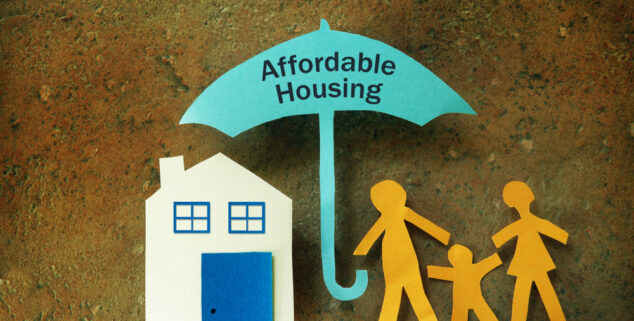Opinion
Dispelling myths about affordable housing
 Housing image by zimmytws
Housing image by zimmytwsOPINION – In the midst of a severe affordable housing crisis in California, it is disheartening to see signs in my neighborhood opposing Senate Bill 9, a law that allows single-family homeowners to add extra dwellings on their property. To be clear, SB9 is not an affordable housing bill, but it will help alleviate the housing crisis.
“Keep this a family neighborhood,” the signs read. These signs of opposition raise an important question: Why are so many people afraid that multifamily housing would somehow harm our neighborhoods?
The City of Los Angeles took vital steps earlier this summer to accelerate affordable housing production. Mayor Karen Bass signed new Executive Directives, including ED-1, which exempts all affordable housing developments of more than 49 units from undergoing a site plan review – reducing development costs and speeding up the final approval of critical housing projects.
This is wonderful news for many low-income residents in Los Angeles – but there is still resistance to new construction affordable housing due to pre-existing beliefs about its impact on neighborhoods and communities.
As Executive Director of the nonprofit Community Corporation of Santa Monica, I’ve attended many meetings over the years in which community members echo the same concerns: increased traffic, overcrowding, and higher community crime rates.
There is still resistance to new construction affordable housing due to pre-existing beliefs about its impact on neighborhoods and communities.
But research has shown these fears to be misplaced.
A 2022 study on affordable housing in Orange County found that affordable housing often leads to lower crime rates, not higher ones. And apartment buildings near jobs and transit should not increase traffic – rather, smart growth planning principles demonstrate that locating a variety of housing types near jobs and transit will reduce traffic and congestion.
Another misconception I hear routinely is that affordable housing could lead to a decrease in the value of surrounding properties.
This couldn’t be further from the truth.
In Los Angeles and around the country, subsidized affordable housing has exhibited a neutral effect – and in many cases, even a positive effect – on neighboring property values.
A 2019 study by researchers at Stanford discovered that affordable housing developments in California increased house prices by 6.5%, lowered crime rates, and attracted racially diverse populations. The US Department of Housing and Urban Development reports that fully subsidized, low-income developments sponsored by primarily nonprofits in LA tend to present greater spillover benefits to neighborhoods. Traditionally, nonprofits are receptive to community issues and have a deep understanding of community needs.
Moreover, in Los Angeles County, the average sale price of homes has increased by four percent in areas with affordable housing units. In Venice, for example, the average sale price rose by one million dollars in the past decade. This year, while home prices declined countywide, neighborhoods with low-cost multi-family buildings saw an increase in value.
Since President Franklin D. Roosevelt signed the Federal Housing Act in 1937, affordable housing has provided significant benefits to both Angelenos of modest means and the communities they call home. For individuals, affordable housing boosts quality of life, improves youth educational outcomes, and diminishes homelessness – an enduring crisis that has soared nine percent in LA County.
Every individual regardless of race, class, or background should have access to economic and educational opportunities in high-demand neighborhoods.
It’s been proven time and time again that affordable housing contributes to the vitality of neighborhoods. Yet the negative rhetoric in community meetings and on yard signs persists. We cannot allow fear and misinformation to impede our progress in addressing the affordable housing crisis. It is time to educate ourselves and our communities about the positive impact of affordable housing.
Tara Barauskas is the Executive Director of Community Corporation of Santa Monica, a nonprofit affordable housing organization based in Santa Monica, California.
Want to see more stories like this? Sign up for The Roundup, the free daily newsletter about California politics from the editors of Capitol Weekly. Stay up to date on the news you need to know.
Sign up below, then look for a confirmation email in your inbox.

Leave a Reply